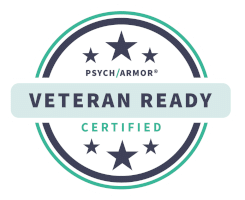Home | Treatment | How We Treat | Animal Assisted Therapy (AAT)
how we treat
Animal-Assisted Therapy
Experience the transformative power of animal-assisted therapy, which offers numerous physical and mental health benefits to enhance the treatment journey.
This treatment method is available at Smoky Mountain Lodge and The Stables Autism Program.
Animal-assisted therapy at Pasadena Villa
Animal-assisted therapy (AAT) is an integral part of the healing process at Pasadena Villa, particularly through our unique facility, The Stables Program for Autism. Situated on 25 acres of serene farmland, this program allows clients to interact with a variety of animals, including goats, pigs, horses, cows, and sheep.
All animal interactions are guided by trained professionals who specialize in incorporating animals into therapeutic practices or are supervised by qualified staff members. While access to animals varies by location, most residents have the opportunity to participate in AAT sessions at least once a week.
This approach fosters connection, reduces stress, and supports emotional well-being as part of a comprehensive mental health treatment plan.
What is animal-assisted therapy?
AAT has been proven to help improve trust, communication, confidence, impulse control, empathy, emotion management, and focus. Interacting with animals — whether it’s a family pet, an emotional support animal, or through equine therapy — can help relieve stress. Clinicians have noted many other positive effects, including reduced feelings of loneliness, increased physical fitness, and relationship building.
Clinicians have noted that AAT has numerous positive effects, including reduced feelings of loneliness and stress, as well as increased trust, physical fitness, impulse control, and confidence.
How does animal-assisted therapy work?
AAT is a versatile treatment that can be tailored to meet each individual’s unique needs and preferences. Its flexibility makes it an excellent complement to other treatment programs, and it is especially beneficial for those with autism spectrum disorder (ASD) and mental health challenges.
For individuals with ASD, animals can serve as a bridge in social interactions, helping to ease communication and build confidence in social settings. AAT encourages positive connections, fosters emotional well-being, and promotes engagement in therapeutic activities, offering a compassionate and effective approach to treatment
aat at pasadena villa
Meet the Animals
Pasadena Villa
Our Levels of Care
From residential treatment to partial hospitalization and intensive outpatient programs, our comprehensive continuum of care meets individuals at every stage of their recovery journey.
Take the first step toward recovery.
Our admissions experts are here to answer your questions and help you begin the process.
Explore our locations or fill out our contact form today.
Your privacy is our priority. All communication is completely confidential.




